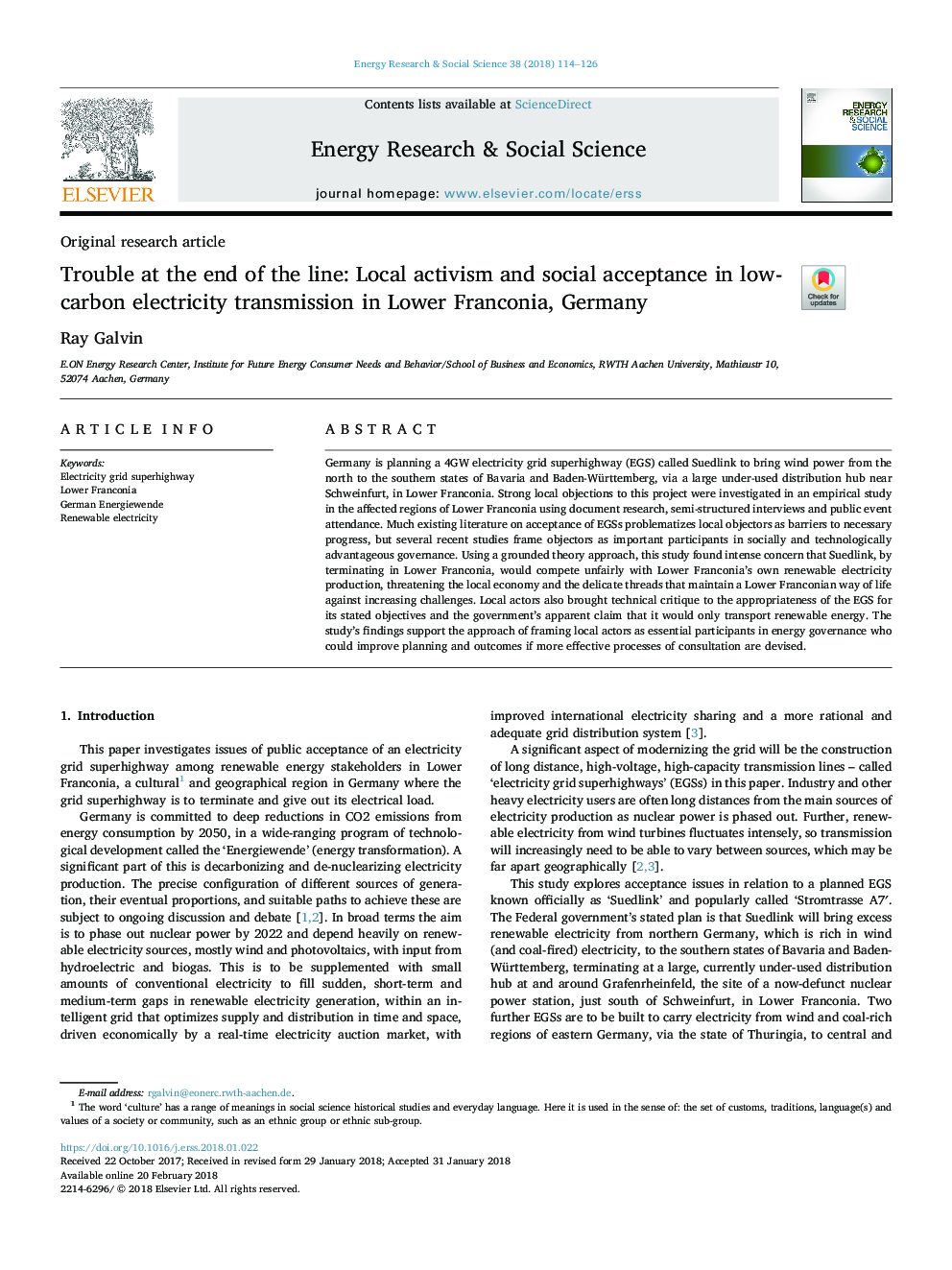| Article ID | Journal | Published Year | Pages | File Type |
|---|---|---|---|---|
| 6557614 | Energy Research & Social Science | 2018 | 13 Pages |
Abstract
Germany is planning a 4GW electricity grid superhighway (EGS) called Suedlink to bring wind power from the north to the southern states of Bavaria and Baden-Württemberg, via a large under-used distribution hub near Schweinfurt, in Lower Franconia. Strong local objections to this project were investigated in an empirical study in the affected regions of Lower Franconia using document research, semi-structured interviews and public event attendance. Much existing literature on acceptance of EGSs problematizes local objectors as barriers to necessary progress, but several recent studies frame objectors as important participants in socially and technologically advantageous governance. Using a grounded theory approach, this study found intense concern that Suedlink, by terminating in Lower Franconia, would compete unfairly with Lower Franconia's own renewable electricity production, threatening the local economy and the delicate threads that maintain a Lower Franconian way of life against increasing challenges. Local actors also brought technical critique to the appropriateness of the EGS for its stated objectives and the government's apparent claim that it would only transport renewable energy. The study's findings support the approach of framing local actors as essential participants in energy governance who could improve planning and outcomes if more effective processes of consultation are devised.
Keywords
Related Topics
Physical Sciences and Engineering
Energy
Energy (General)
Authors
Ray Galvin,
